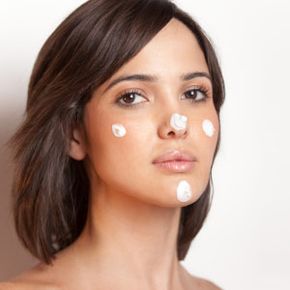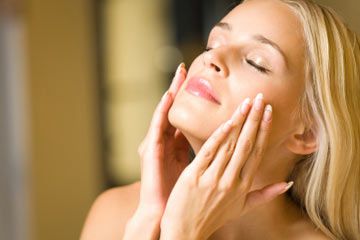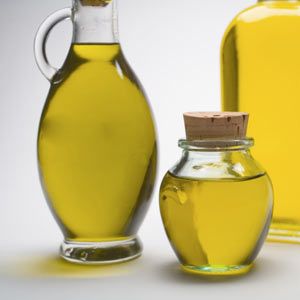Understanding the claims made by moisturizer commercials can be difficult -- the words sound good, but sometimes it's hard to determine the truth behind them. Various moisturizers claim to make skin look younger, healthier, brighter and more even. They might promise to minimize pores or to tighten and tone skin. Some even claim to fight wrinkles or reduce sun damage. And with price tags ranging from $5 to well into the thousands, determining what benefits your skin would actually get can seem like a daunting prospect.
Moisturizers affect the appearance of skin by doing three things -- fighting dryness, balancing skin tone and improving skin texture [source: Mayo Clinic]. The moisturizing product achieves these goals by helping the skin absorb water and by filling in the spaces between skin cells to replace lost moisture [sources: Kraft and Lynde, Mayo Clinic].
Advertisement
If you want your moisturizer to reduce wrinkles and other signs of aging, diminish scars or stretch marks, or boost collagen production, beware: Many of these claims have not been proven in moisturizers [source: Mayo Clinic]. In such cases, before you fork over your credit card, it might be beneficial to see what -- if any -- scientific studies have been done on the moisturizer formula to determine the validity of the manufacturer's claims. You should also check to make sure that what you buy has at least one proven effective ingredient. In the case of anti-aging creams, for example, you should look for retinoids, alpha hydroxy acid, kojic acid or salicylic acid [source: American Academy of Dermatology].
Understanding your skin type is the best starting point for determining what type of moisturizer will be most beneficial to you. For example, moisturizers made for dry skin may be oil-based, which is heavier than what someone with normal skin would need because it would likely cause breakouts. Other moisturizers may contain fragrances or dyes that would irritate sensitive skin.
The bottom line is that before choosing a moisturizer, you should figure out what you want it to do and what type of skin you have. After you've determined those things, all that's left to do is test various products until you find the one that works best for you.
If you'd like to know more about moisturizers and how they work with your skin, follow the links on the next page.
Advertisement


